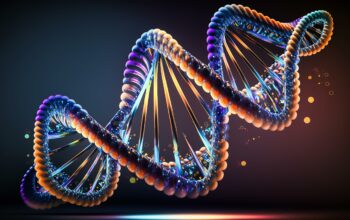Systems biology represents an interdisciplinary nexus where biology, mathematics, physics, and computational science converge to unravel the complex interdependencies that underlie biological processes. As a burgeoning field, it leverages quantitative methodologies to elucidate the intricate networks that sustain life, all while deploying a variety of representational strategies and analytical techniques. Scholars and practitioners in this field engage in an intricate dance of modeling, simulation, and empirical validation, allowing them to construct robust frameworks that predict cellular behavior, organismal responses, and ecological interactions.
This article will explore the multifaceted nature of studying systems biology, elucidating the types of content and experiences that learners can expect, as well as the conceptual frameworks that underpin this dynamic discipline.
Core Concepts of Systems Biology
At the foundation of systems biology lies the concept of systems dynamics, which examines how biological entities interact within their respective contexts. Students will first encounter network theory, an essential component that visualizes biological components—genes, proteins, and metabolites—as nodes in a vast network. These entities are interconnected through various interactions, such as regulatory cascades and metabolic pathways, forming a complex web that defines cellular functionality.
Systems biology also necessitates an understanding of feedback loops, where the output of a biological process influences its own input. An exemplar of this concept can be found in gene regulation, where the presence of specific proteins may either enhance or inhibit gene expression through intricate feedback mechanisms. Emphasizing these relationships facilitates a deeper comprehension of homeostasis and adaptability within living systems.
Mathematical Modeling in Biological Contexts
Integral to this field is the use of mathematical models to simulate biological phenomena. Students will learn to employ various mathematical frameworks, such as differential equations, to model the kinetics of biochemical reactions. This aspect of systems biology emphasizes the transition from qualitative observations of biological processes to quantitative predictions, effectively encoding biological knowledge into functional equations.
A prominent tool in this regard is the ordinary differential equation (ODE), which describes how the rates of change of biological variables are influenced by one another. Mastery of ODEs can empower students to simulate dynamic processes such as cell proliferation, signal transduction, and metabolic flux, allowing for a greater understanding of temporal variations in biological systems.
Computational Techniques and Data Integration
In the era of big data, systems biology has increasingly embraced bioinformatics and computational techniques to manage and analyze vast amounts of biological information. Students will explore how high-throughput technologies, including next-generation sequencing and mass spectrometry, yield data that are often heterogeneous and complex. The integration of these data sets demands sophisticated computational tools, providing an avenue for students to acquire skills in programming languages, database management, and statistical analysis.
Moreover, machine learning techniques are becoming invaluable assets for systems biologists. These algorithms can unveil hidden patterns and relationships within data, facilitating the identification of novel biomarkers or therapeutic targets. As students engage with such methodologies, they cultivate an aptitude for data-driven decision-making that transcends traditional experimental paradigms.
Experimental Validation and Systems Approaches
While theoretical models and computational tools are central to systems biology, the robustness of these constructs relies heavily on empirical validation. Students are often exposed to a variety of experimental techniques designed to corroborate computational predictions. Techniques such as CRISPR-Cas9 gene editing, RNA sequencing, and mass spectrometry allow researchers to manipulate biological systems and observe resultant changes, thus providing insights that inform and refine their models. This iterative cycle of hypothesis generation, experimentation, and model refinement is a hallmark of the scientific method embraced within systems biology.
Challenges and Ethical Considerations
Engaging with systems biology also involves grappling with a set of challenges. The inherent complexity and stochastic nature of biological systems can lead to discrepancies between model predictions and empirical observations. Students must develop resilience and adaptability as they navigate these uncertainties. Furthermore, the intersection of bioinformatics, genomics, and systems biology raises significant ethical considerations, particularly in domains such as synthetic biology and personalized medicine. An understanding of the implications surrounding these advancements is crucial for a well-rounded perspective on the societal impacts of biotechnological innovations.
Interdisciplinary Collaboration and Career Trajectories
A distinguishing feature of systems biology is its emphasis on collaboration across diverse academic and operational domains. Students often work in interdisciplinary teams that engage with experts in computational science, clinical research, and biotechnology. Such collaborations foster innovative approaches to complex problems, bolstering the potential for significant scientific breakthroughs.
For individuals contemplating a career within this field, numerous pathways are available, spanning academia, industry research, and regulatory affairs. Roles may include computational biologists, data analysts, and systems biologists, with opportunities to influence drug development, disease modeling, and public health initiatives.
Conclusion
Studying systems biology embodies a fascinating foray into the mathematical and computational representation of life itself. Students can expect to be challenged intellectually while gaining a comprehensive skill set that marries theoretical knowledge with practical applications. As this discipline continues to evolve, those immersed in this intellectual endeavor will undoubtedly contribute to transformative advancements in our understanding of biology and its implications for health and disease management.








